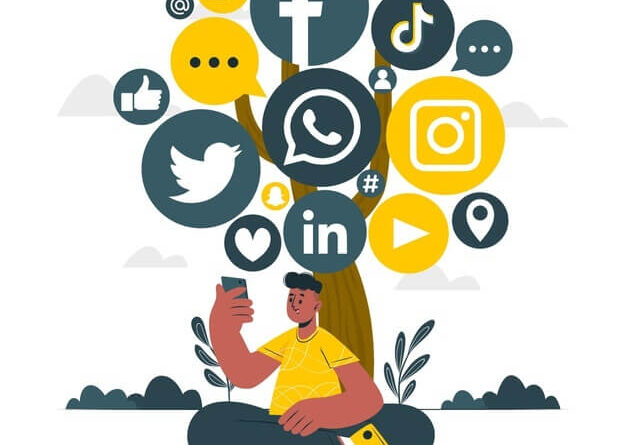Is Social Media Getting Irrelevant Nowadays?
Is there finally a decline in social media? Are internet users finally fed up with lack of privacy, being manipulated by the algorithm to click on and buy stuff, and a large amount of information that needs to be constantly processed? There is a shift in the dynamic of social media trends and that will be explored further ahead.
Is social media changing the world?
According to Statista, around 3.6 billion internet users worldwide were using social media platforms in 2020, and that number is expected to increase to 4.1 billion in 2025. To understand the context, every minute more than 30 million messages are sent on Facebook, and 350,000 tweets are posted on Twitter. This staggering amount is nearly half the world population and it shows that the use of social media platforms is growing, instead of decreasing.
Following are six observations that will decide the future of social media platforms.
- Changing trends at jobs. A journalist working at a newsroom stated that social media skills are no longer considered some insignificant role in the industry, rather it has completely changed the way how things are run. Managing social media presence is no longer the responsibility of just one person or a small team. Businesses can attract clients and consumers towards their products and services, and queries and concerns can also be conveyed and discussed.
- Social Media as Online Paying Platforms. Internet users are using social media platforms to send money to others. Companies are starting to adopt the new technology to help users open their bank account via social media platforms. Users can even get a loan as well. But there are still security risks to it, which need to be managed. Banks and other companies will need to implement policies regarding that.
- Healthcare and public health. Social Media platforms are even changing the way for the health industry, either through public health campaigns or virtual visits to the doctor via Skype. Internet users have also been able to reach out to others who are suffering from the same ailments as them. Moreover, social media platforms were also used to spread information about the COVID pandemic, where it was widespread, where people could sign up for vaccination, etc. Though it is not without some of its downsides which are that there is a possibility of misinformation as well, by non-experts sharing their opinions about any health concerns that others will misinterpret to be true.
- Govern and be governed. Since leadership activities of the government are becoming more and more transparent on social media platforms, it is giving citizens the chance to share their ideas, plans, initiatives, or complaints. Social media platforms are helping to transform this relationship with politicians, government officials, and the citizens and bring them closer.
- Disasters. Facebook’s Safety Check allows Facebook users to let their families and friends know that they are safe wherever any disaster strikes. Internet users from disaster-ridden places send tweets on their Twitter accounts and snaps on their Snapchat to let the rest of the world of their situation. It also encourages people to send over donations and help to such places. There are also digital responders who use their time, skills, and personal networks to mitigate information for humanitarian aid services.
- Climate Change. Social media platforms are also helping to tackle human rights violations and climate change. Egypt’s Arab Spring is one of the best examples of how social media was able to change the world. Prosecutors and human rights advocate deeming that information as potential evidence to be brought before the international court. Moreover, like-minded persons have been brought together to fight climate change. Greta Thunberg, a Swedish activist, was able to raise awareness towards climate change through her social media platform and that is how many big international organizations have reached out to her to support her cause.
Social media platforms have been helpful in multiple aspects. It’s clear that their irrelevance is just a myth since social media platforms are constantly growing to meet the demands of internet users and their user experiences. Businesses and service providers can reach out to their customers to resolve their queries and introduce them to new packages and bundles. For instance, Xfinity has been able to use its social media platforms to reach out to its existing and potential subscribers. Their 24/7 customer service is on standby for subscribers to reach out to them about their Xfinity internet, phone, and cable TV services, or even Xfinity double play packages where they can make use of double services in a single unit.
